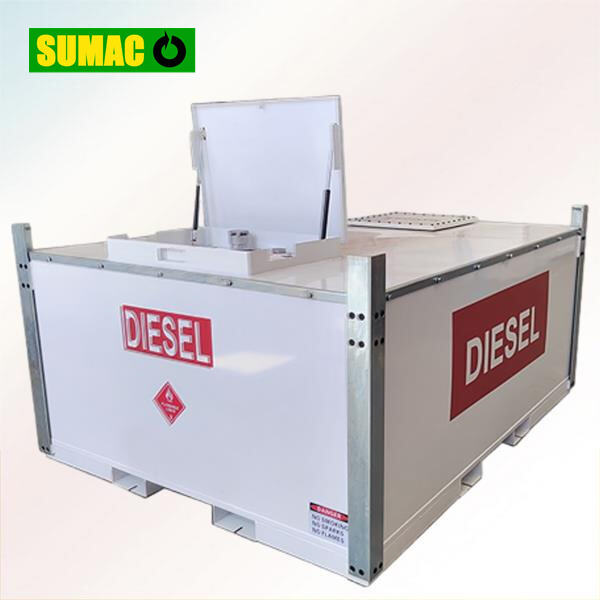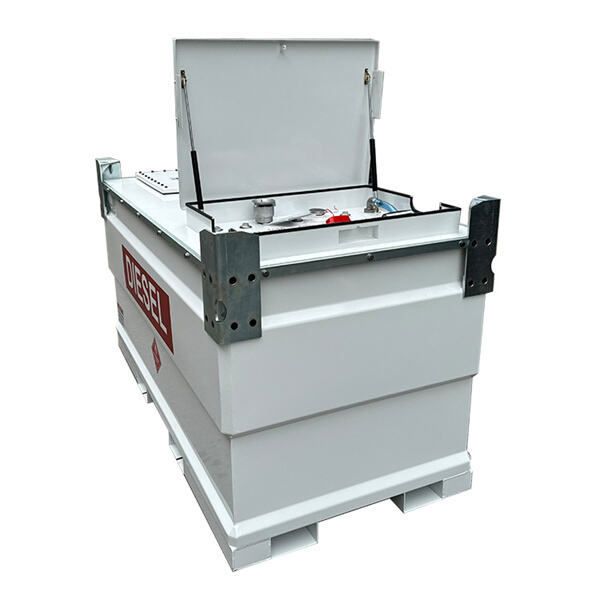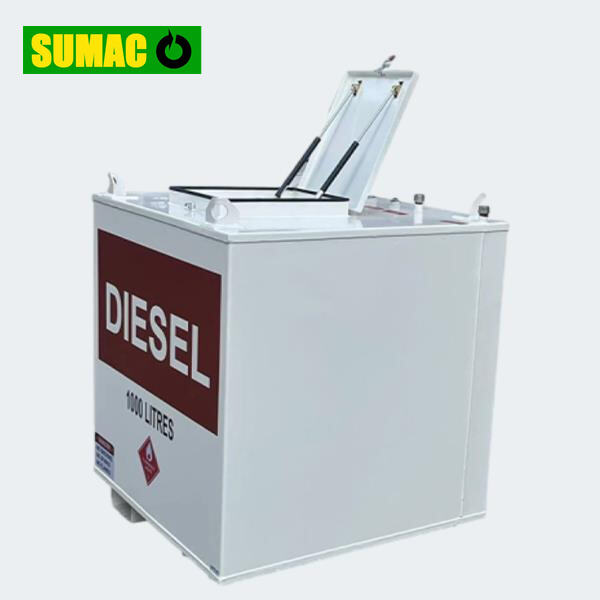Diesel engines are one hell of a beast. They require DEF, or diesel exhaust fluid. This one liquid is essential. Also, it helps to lessen the noxious fumes that can be released from engine. It is a liquid that has its own tank (DEF fuel tank). To keep your diesel engine running clean, and to ensure it runs smoothly — you must maintain the fuel filter. This guide provide detailed information about def tank by SUMAC and why you need them for your diesel engine. Most people are aware that DEF tanks are typically comprised of plastic. Bags come in all shapes and sizes. You see, it's definitely a size matters (pun intended) situation according to the type of car you drive. The DEF fuel tank is situated right next to the diesel fuel tank. In the bed, 20 gallons of DEF liquid (a lot) If the amount of DEF liquid in the tank becomes critically low, an indicator light on the dash will remind drivers to top up. This DEF fluid is made up of two main components: Urea and deionized water. These chemicals are then mixed together to form anti-pollution gasses that turn the harmful emissions from your engine into water and nitrogen gas. The liquid is then injected into the exhaust system, where it mixes and gets sprayed into the flow of gas exiting through an atomiser. It works to convert those harmful gases into the air. If a diesel engine runs out of DEF fluid, it will emit nearly 40 times the amount of smog-forming NOx compared to that same vehicle with a full tank.
The most vital thing you can do to make sure your DEF fuel tank functions correctly is by making it clean and keep the dirt out of it. DEF rots during exposure to moisture and dirt, if your DEF tank becomes contaminated it can ruin the vehicle's exhaust system (that is expensive). Keep DEF in a clean, dry container This will prevent any garbage from contaminating that could damage the engine. Well, you should also know that the DEF fluid does not last along forever. DEF usually has a shelf life of approximately one year. In really hot or direct sun for an extended time it could turn funky so I would not do that. Purchasing fresh DEF is often a good idea, and it could be worth periodically emptying whatever old or outdated fluid was left in the SUMAC tank. The size of your vehicle should be kept in mind when picking a DEF fuel tank. You should also think about how often you are driving and how much diesel engine use that generates. For such as small diesel engine and very short trips, that tiny DEF tank might actually be enough. But maybe in a bigger car, or one that you'll keep for ages, and then a big tank comes into play.

One of the most common problems that plague DEF fuel tanks is contamination. This causes worst case to occur, a broken engine but besides that you vaporizing in damage up before your exhaust method which can be terribly pricey. This can be avoided if clean DEF fluid is used. Therefore, keep it well-maintained and check your def fluid tank for any leaks or abnormal signs periodically.

Another issue that can occur is inconsistent DEF appearing as solid ice. At 12°F (-11°C), DEF fluid freezes! This is also why DEF tank heater (or battery warmer) will be required as part of the complex environment in winter to avoid urea crystallizing concluding into expanding blocks and preventing it from contact with SCR. You might like: DEF tanks can come with heaters to prevent the urea based fluid from freezing. In case you are aware that your tank does not have any warmer there is another option for keeping the liquid from getting frozen, namely parking in a warm garage or special cover of your tank.

Only sometimes, it will no longer work well because of a grimy tank or injector. The energy light in your engine might turn on, and if the injector and diesel def tank gets clogged you may find out how to generate more harmful gases than before. It is absolutely critical for you to have your car inspected and repaired the moment a problem with your DEF system arises so that no future damages are done.
Def fuel tank tire and ELV recycling machine are both equipped with CE certifications. The CE certificate certifies that our machines meet the EU's fundamental requirements for health, safety, and environmental protection. This permits these machines to be used and sold in the European market. It also acts as an indication of their high-quality and conformity to international standards.For NW-1000, Northwest-2000, and NW-4000 cube tanks we are able to provide a UL certificate. The UL certification (Underwriters Laboratories) is a prestigious label within the United States, as well as in many other nations. It means that the tanks we use have passed stringent testing and are in compliance with the safety and performance standards established by UL. This certification is essential to ensure the safety and reliability of the tanks, especially in applications where they are used to store or transport potentially hazardous substances.
Sumac is a Def fuel tank of construction machinery It showcases the most innovative products and solutions Experience the power of a global brand of construction machinery learn about the dynamism of industry development and demonstrate the strength of industrial production
SUMAC Auto Recycling Equipment., Ltd. is a proudly Chinese owned and Def fuel tank that produces and sells Automatic Waste Tire Recycling Machines, ELV Recycling Machines ( Fuel Drainage Station, All In One Station) and Self Bunded Tanks that are suitable for the storage and dispensing of Diesel and Petrol (Gasoline), Aviation Fuels, Lubricants, Diesel Exhaust Fluid and Oil.
SUMAC waste tire recycling machines and ELV Def fuel tank address environmental issues and recycle waste materials into valuable. The recycled metal, rubber and various other materials could be used in a variety of industrial fields. The fuel cube, a portable self-bunded tank is designed for transport and dispensing fuel precisely at the time and where you require it.